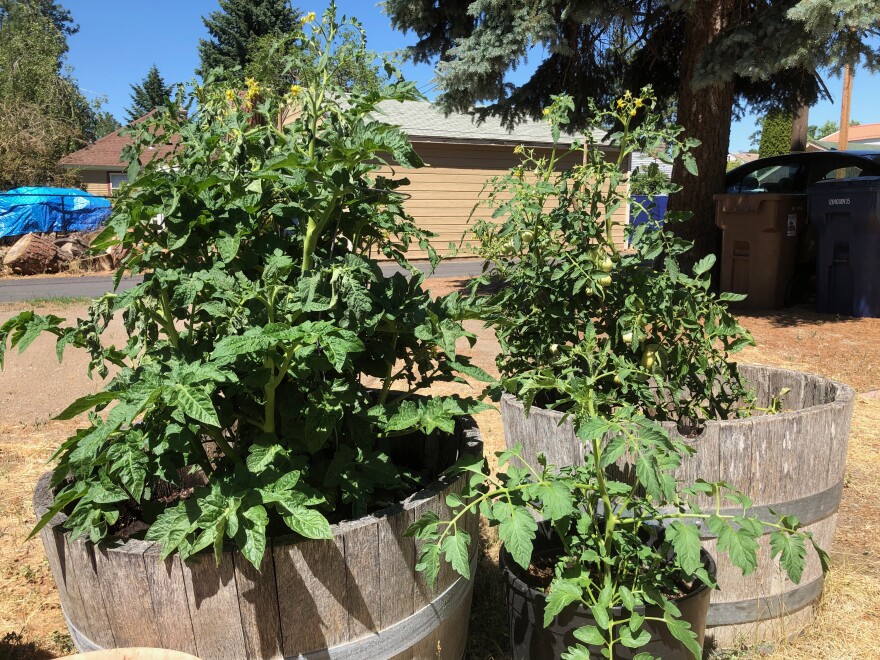The unprecedented heat in the region this week poses some extra challenges for those with vegetable gardens.
With temperatures in the triple digits for the next several days in the Inland Northwest many plants could stop producing food and blossoms, wilt or die.
Kohlhauff says deep watering is also a good strategy.
“If we water for a longer period of time which allows the water to move deeper into the soil, then we're encouraging more root growth down lower in the soil, and those roots are less susceptible to drying out than the roots that are higher up in the soil," he said.
Many gardeners still have cool weather crops growing right now, like spinach or lettuce. Those plants are very likely to “bolt” or send out flowers in this heat, but Kohlhauff says there is one trick that could still be effective to prolong those vegetables.
“Shade cloth is something that you put up higher in the garden. A lot of folks don't have the extra money to put something like that up, but shade cloth keeps some of the heat off the plants," he said.
And surprisingly, this extreme triple digit heat can also have a negative impact on plants usually associated with hot summer temperatures.
When temperatures go above 85, some plants slow down their growth. When it gets over 95, the result can be a complete halt in any flower or eventual food production.
“So tomatoes, squash, peppers, melons, cucumbers, even beans, will sometimes stop flowering. Or squash plants will have male and female flowers and they will still flower, but they'll only produce male or female flowers, so they don't get pollinated,” he said.
A plant may drop fruit that has already been growing in an effort to survive.
In some cases, no matter how much water is in the soil, plants will lose it faster they can take it up, and will wilt or show browning on the edges of their leaves.


